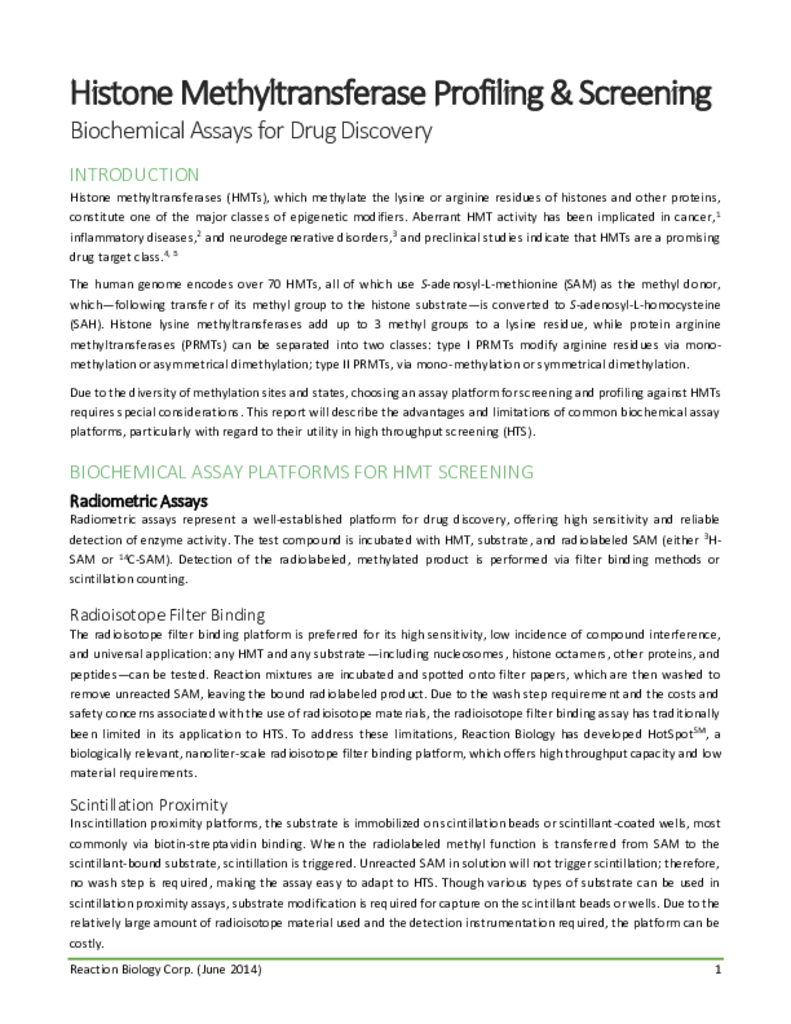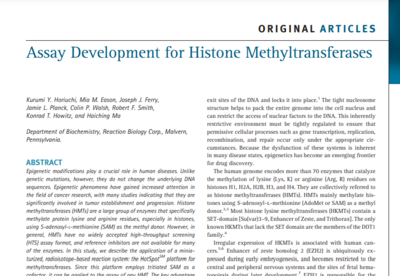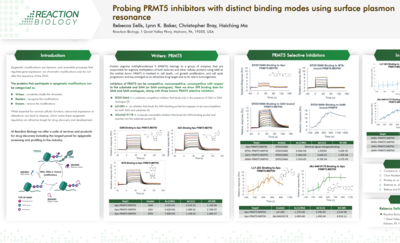Methyltransferase Assays
Reaction Biology offers the largest collection of methyltransferase assays in the industry, comprising over 30 assays for compound screening and profiling.
All methyltransferase assays are radioisotope based using 3H-AdoMet. MT HotSpotTM is a gold standard radioisotope based MT assay service available for both profiling and low-cost high-throughput screening. It is also the only methyltransferase assay technology that can use nucleosome, histone protein, and peptide as substrates without any modifications.
All methyltransferase proteins and substrates are produced in house and are also available for purchase.
- Free-choice screening and selectivity panel screening options for methyltransferase activity assays
- Detection of inhibitors with varying binding modes
- Low scale, large scale screening and high-throughput options as well as hit to lead screening options are available
Customized methyltransferase screening service is an option as well as methyltransferase assay development tailored to your research needs. Please inquire for more information.
Reaction Biology performs methyltransferase panel screening every other week at our state-of-the-art screening facility in Malvern, Pennsylvania. We typically complete standard projects in 10 business days.
Cell-based methylation assays can be performed via Western blotting and AlphaLISA. The assays can be performed as secondary assays after completed biochemical screening. Together with our biophysical assay suite for binding and mechanistic studies, all needs for methyltransferase drug discovery can be covered.









